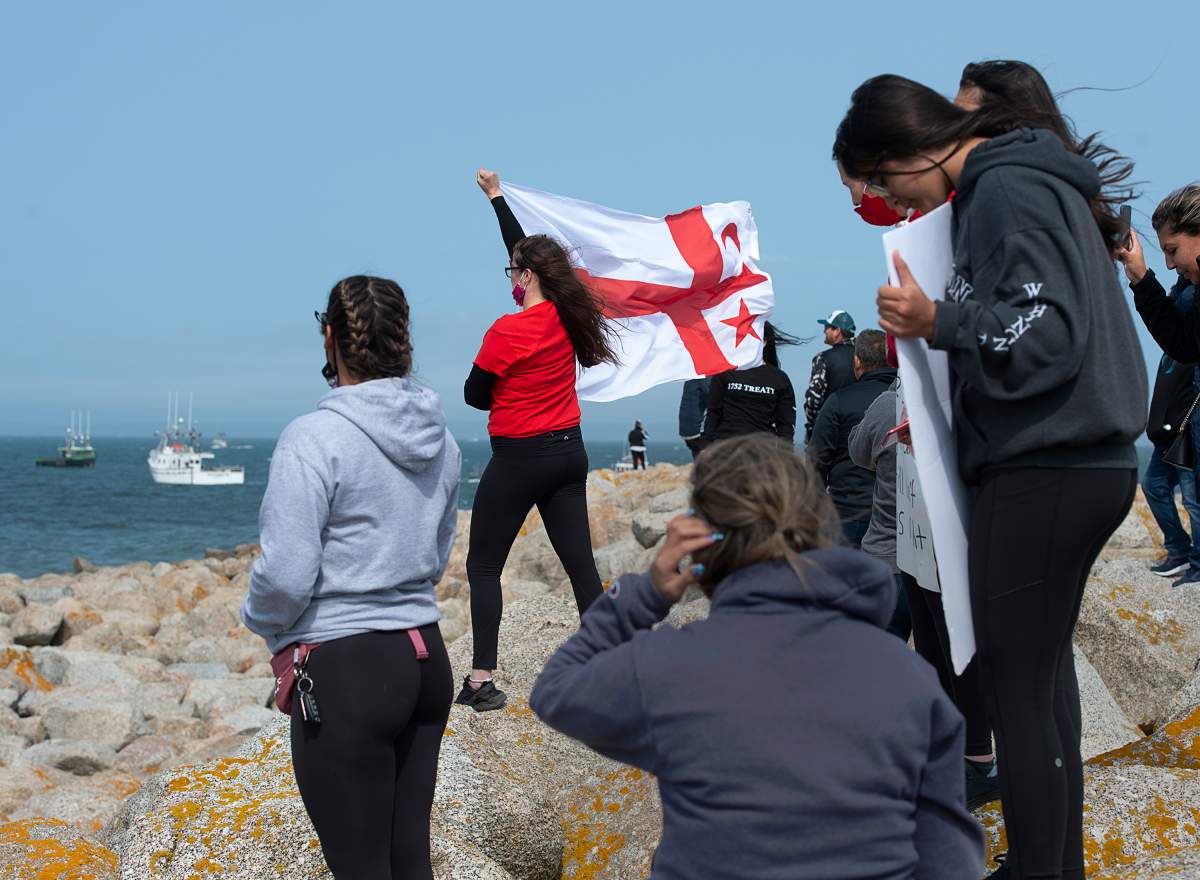Indigenous groups in New Brunswick are offering their support to Nova Scotia First Nations at the centre of a battle over fishing rights in that province.

The Sipekne’katik First Nation in Nova Scotia launched its own fishery in September, following the conclusion of the commercial fishing season, based on a 1999 court decision that ruled Indigenous communities have the right to fish for a moderate livelihood.
In the weeks that followed, tensions have boiled over with confrontations between Indigenous and non-Indigenous commerical fishers, who say the new fishery and others like it are a threat to the sustainability of the industry.
The New Brunswick group Eastern Circle Saint John held a rally in the city Saturday in support of First Nations’ fisheries and rights.
Volunteer Gail Standingready said she told the gathering the rights of Mi’kmaq fishers are inherent.

Get daily National news
“Rights just exist,” Standingready said. “They don’t have to agree on it, we don’t have to meet about it, they just exist. I had seen in several posts and articles that the fishermen said they didn’t agree that we didn’t have Indigenous rights. Well you don’t have to agree. They just are.”
The term “moderate livelihood” was not defined in the initial court ruling, nor have federal governments moved to create a definition in the two decades since.
A senior fellow at the Macdonald-Laurier Institute believes the definition needs to go beyond the fishery.
Ken Coates suggests a modern treaty, which expands Indigenous rights into other sectors of the economy like forestry and tourism.
He said the modern treaties are working well in the Yukon and Northwest Territories.
“The people then see, ‘Well, we’re part of this overall economy,'” Coates said. “‘We don’t have to focus down on one thing.’
“And I think the absence of creative ideas on how to move forward is really holding us back.”
Standingready said governments have spent millions on inquests and inquiries trying to understand the culture of Indiginous communities but have not addressed the core problems.
“But when it comes to resource development and real needs, real needs that Indigenous people have, we don’t have it,” Standingready said. “And we want it. And we’re going to fight for it. And we’re going to make sure we have it.”









Comments
Want to discuss? Please read our Commenting Policy first.